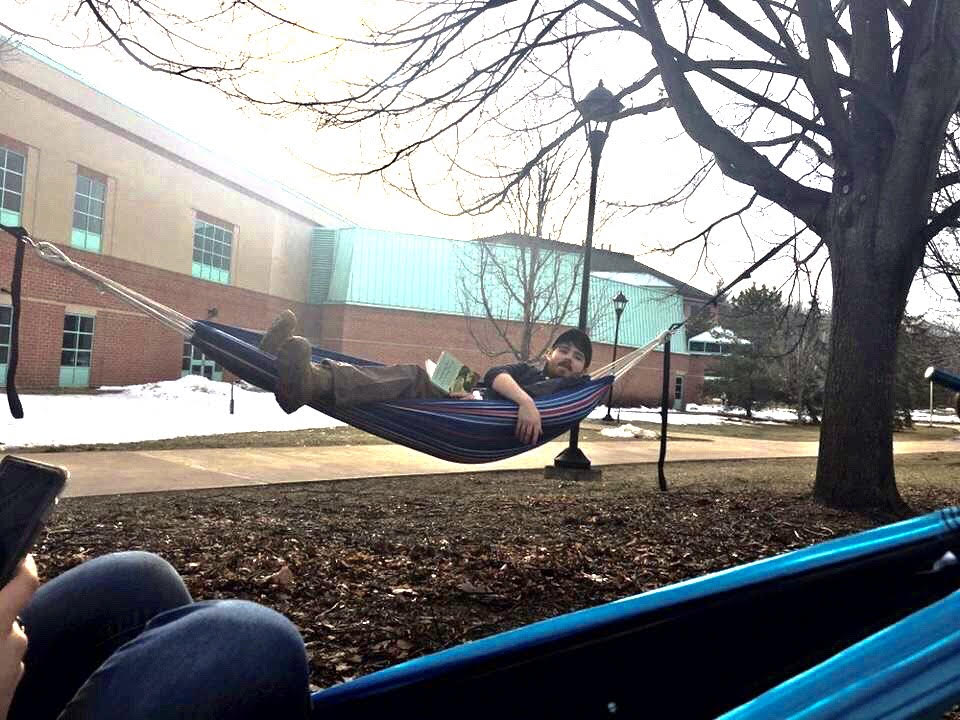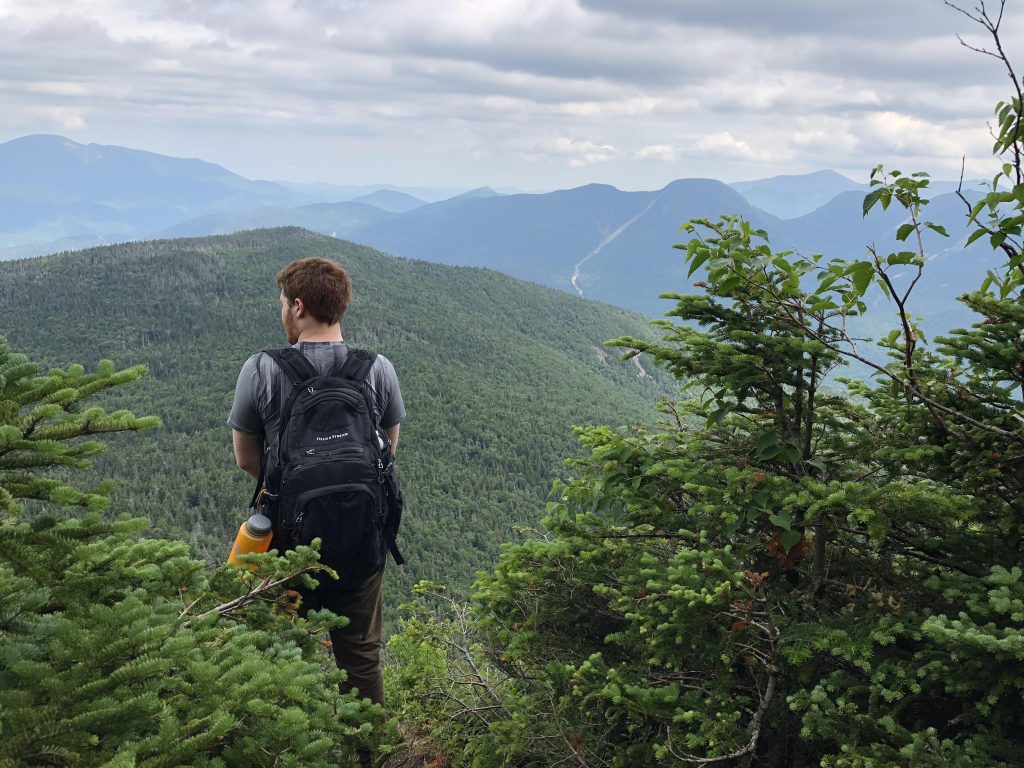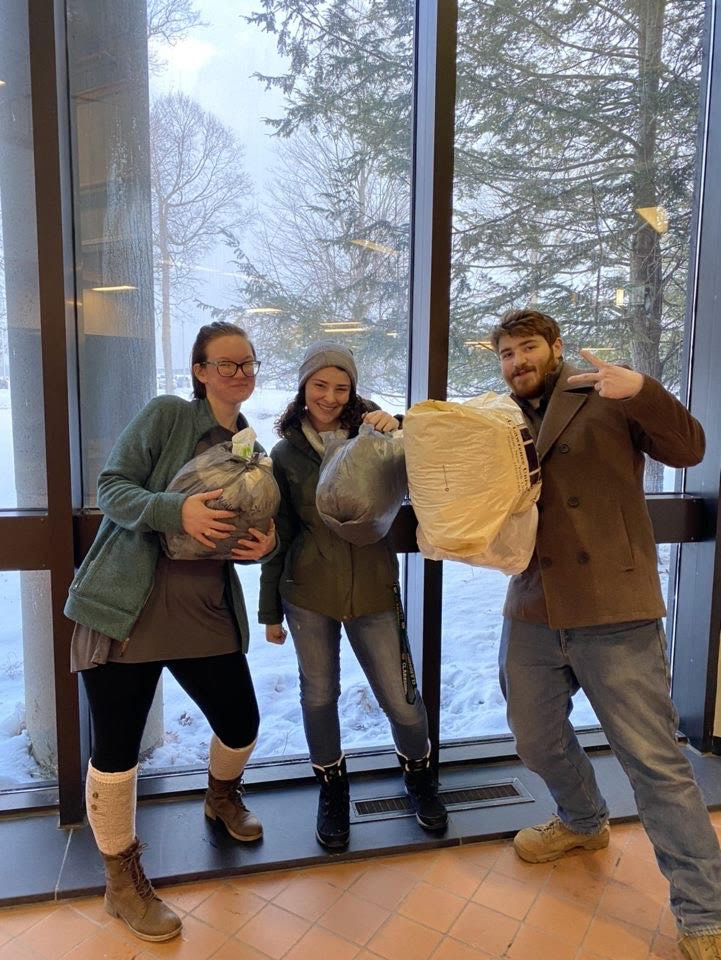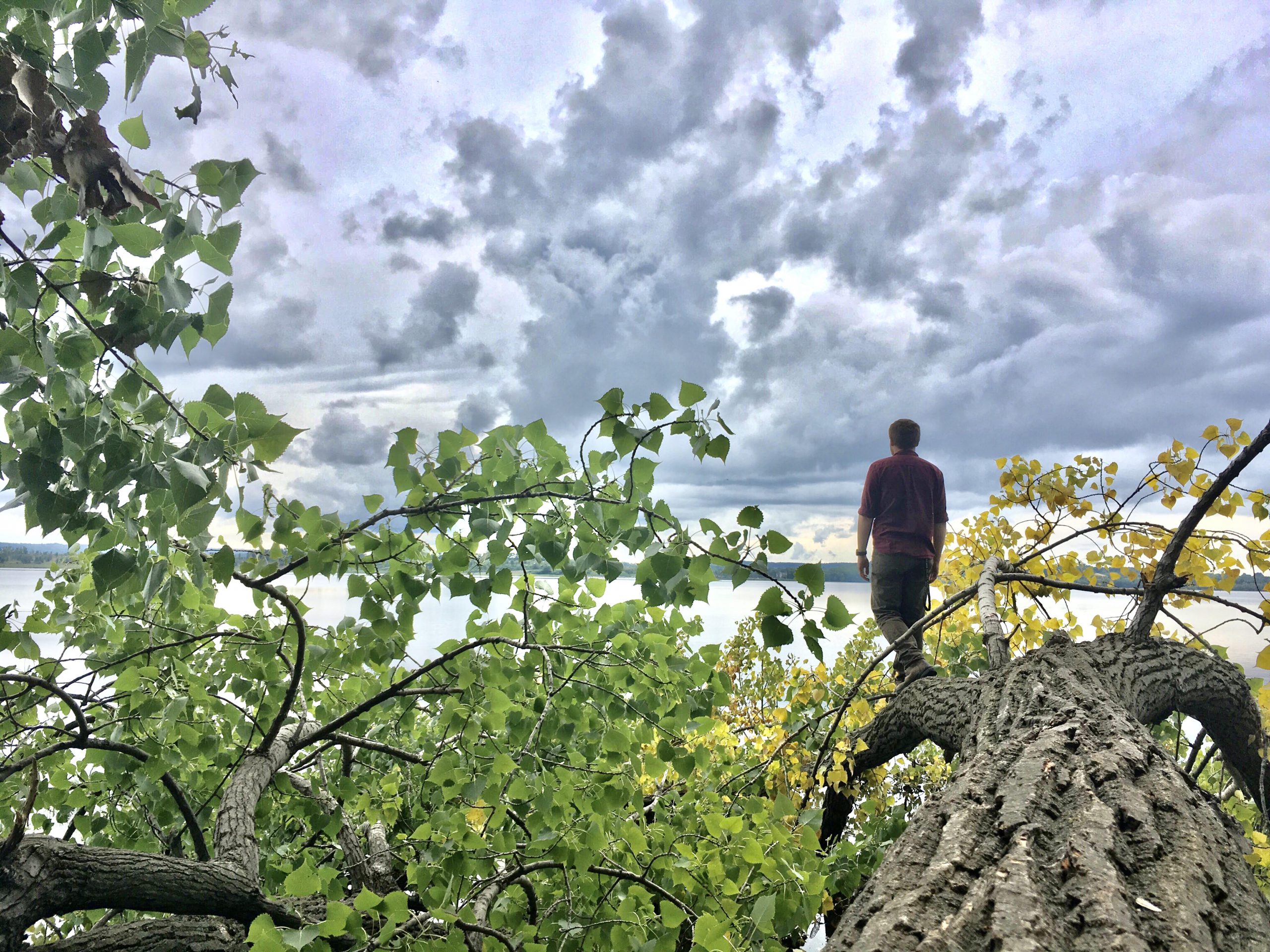
Hi! I’m Toby Harmon ’22, an environmental science and policy major at Clarkson and here’s the experience of my involvement with the Institute for a Sustainable Environment (ISE). I grew up on a farm in a small town in Central New York, where I graduated high school with a class of 24 other students. As a result, I knew I couldn’t possibly thrive at a massive university with 30,000+ undergraduates. I had formed personal connections with most, if not all, of my teachers and knew from a young age just how important creating those relationships can be. Clarkson was the perfect environment for building such relationships. The interactions I’ve shared with my professors, the connections I’ve established, have led me to a whole new path I never saw myself going down.
When I first came to Clarkson, I majored in mechanical engineering, but after a co-op with GE Aviation my sophomore year, I found my passion just wasn’t there. Eventually, I became involved with the Institute for a Sustainable Environment (ISE). Because of my love and appreciation of nature, and after hours of discussion with my advisors and other professors, I switched to environmental science and policy and found my excitement for education again.

I’ve been lucky to get involved in several different projects with the Institute for a Sustainable Environment and Clarkson research. The summer of my freshman year was spent on campus conducting research with Professor Stephen Bird on rural community ideologies and the spread of ideas in non-urban areas such as the Adirondacks. For over two years, I’ve been involved with the Clarkson Sustainability Club and was the vice president throughout my sophomore year.
During the spring semester of 2020, I worked on a team project that involved designing a sustainable and water-efficient greenhouse for a resort ranch in Colorado. Although the project and its travel plans were disrupted by situations beyond our control, the experience of working in a large group for a common goal was well worth the time spent.
As a junior, I’ll be spending my fall semester at Paul Smith’s College near Saranac Lake for Clarkson’s Adirondack Semester, during which we will be studying the effect of legacy mercury build-up on aquatic species in the area. Having the Adirondacks, this sprawling expanse of wilderness, so close at hand provides Clarkson students with an entirely new realm of possibilities and experiences right outside our back door. It plays a large role in not only the education at the University, but also in the daily lives and social interactions of students.

And finally, when I return to Clarkson for the spring semester, I might have a chance to team up with Professor Alan Rossner and assist him with developing a small-scale environmental air quality monitoring device.
There are countless different directions to go once you’ve tracked down the proper starting place. Clarkson not only allows you to follow whichever trails best suit you, but they encourage it and foster your journey. Finding and pursuing what truly intrigues you is the best thing you can do for your education. The personal connections you form will help guide you to the best path.
I chose Clarkson and the ISE because I wasn’t just a student ID number on a roster. My professors know me by name and check in and interact. They give their students a voice, and that is the most important part of education. The professors at Clarkson and within the Institute for a Sustainable Environment are so willing to reach out and interact to help you find your way through the mess of information and choices that surrounds you. These interactions help build connections that will last long after you graduate and will be more important to you than anything you learn in a classroom.

